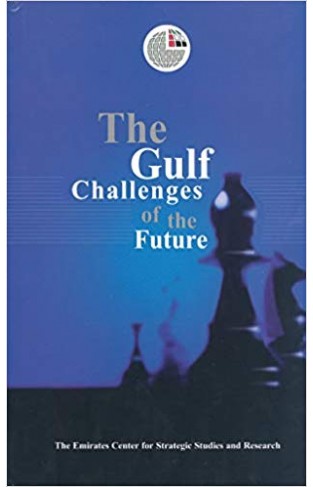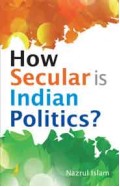The Gulf Challenges of the Future
By: N/A
-
Rs 547.25
- Rs 995.00
- 45%
You save Rs 447.75.
Due to constant currency fluctuation, prices are subject to change with or without notice.
Over the last few centuries, the Arab states of the Gulf and Iran have played roles of great strategic and economic significance: whether as a hub of world trade or as major suppliers of the world's energy. However since 2001, the region - in common with much of the Islamic world - has been the focus of negative sentiment and scrutiny as a potential battleground in the international war against terrorism. More recently, the Gulf states have been exposed to new difficulties in the unfolding aftermath to the war in Iraq. Against this disturbing backdrop, the region is striving to face these new and diverse challenges: the deteriorating security environment, the sweeping effects of globalization, the diversification of oil-dependent economies, the transition to knowledge-based economies, burgeoning population levels, rising demand for job creation, externally induced reform pressures and widening political participation. Influential policy makers, regional leaders, scholars, economists and security analysts here offer the first major response to the challenges since the Iraq war. The resulting analyses offer fresh insight into shifting security parameters, the redefining of government responsibilities, the initiation of political and social change, the evolution of media roles, and the expansion of opportunities for women. The book also presents important new assessments of the security situations in Iraq and Iran, and early developments in security co-operation and economic integration in the region.
Over the last few centuries, the Arab states of the Gulf and Iran have played roles of great strategic and economic significance: whether as a hub of world trade or as major suppliers of the world's energy. However since 2001, the region - in common with much of the Islamic world - has been the focus of negative sentiment and scrutiny as a potential battleground in the international war against terrorism. More recently, the Gulf states have been exposed to new difficulties in the unfolding aftermath to the war in Iraq. Against this disturbing backdrop, the region is striving to face these new and diverse challenges: the deteriorating security environment, the sweeping effects of globalization, the diversification of oil-dependent economies, the transition to knowledge-based economies, burgeoning population levels, rising demand for job creation, externally induced reform pressures and widening political participation. Influential policy makers, regional leaders, scholars, economists and security analysts here offer the first major response to the challenges since the Iraq war. The resulting analyses offer fresh insight into shifting security parameters, the redefining of government responsibilities, the initiation of political and social change, the evolution of media roles, and the expansion of opportunities for women. The book also presents important new assessments of the security situations in Iraq and Iran, and early developments in security co-operation and economic integration in the region.
Myths Illusions and Peace: Finding a New Direction for America in the Middle East
By: Dennis Ross
Rs 985.50 Rs 1,095.00 Ex Tax :Rs 985.50
Zubin Mehta: A Musical Journey (An Authorized Biography)
By: VOID - Bakhtiar K. Dadabhoy
Rs 472.50 Rs 1,050.00 Ex Tax :Rs 472.50
Built to Last Successful Habits Of Visionary CompaniesAI
By: James C. Collins
Rs 4,045.50 Rs 4,495.00 Ex Tax :Rs 4,045.50
Anna Hazare: The Face Of Indias Fight Against Corruption
By: Pradeep Thakur
Rs 225.00 Rs 300.00 Ex Tax :Rs 225.00
Idea Man: A Memoir by the Cofounder of Microsoft
By: Paul Allen
Rs 1,421.25 Rs 1,895.00 Ex Tax :Rs 1,421.25
Manning Up: How the Rise of Women Has Turned Men into Boys
By: Kay Hymowitz
Rs 646.75 Rs 995.00 Ex Tax :Rs 646.75
Built to Last Successful Habits Of Visionary CompaniesAI
By: James C. Collins
Rs 4,045.50 Rs 4,495.00 Ex Tax :Rs 4,045.50
Anna Hazare: The Face Of Indias Fight Against Corruption
By: Pradeep Thakur
Rs 225.00 Rs 300.00 Ex Tax :Rs 225.00
Idea Man: A Memoir by the Cofounder of Microsoft
By: Paul Allen
Rs 1,421.25 Rs 1,895.00 Ex Tax :Rs 1,421.25
No recently viewed books available at the moment.
Zubin Mehta: A Musical Journey (An Authorized Biography)
By: VOID - Bakhtiar K. Dadabhoy
Rs 472.50 Rs 1,050.00 Ex Tax :Rs 472.50
Myths Illusions and Peace: Finding a New Direction for America in the Middle East
By: Dennis Ross
Rs 985.50 Rs 1,095.00 Ex Tax :Rs 985.50
Built to Last Successful Habits Of Visionary CompaniesAI
By: James C. Collins
Rs 4,045.50 Rs 4,495.00 Ex Tax :Rs 4,045.50
Anna Hazare: The Face Of Indias Fight Against Corruption
By: Pradeep Thakur
Rs 225.00 Rs 300.00 Ex Tax :Rs 225.00
Idea Man: A Memoir by the Cofounder of Microsoft
By: Paul Allen
Rs 1,421.25 Rs 1,895.00 Ex Tax :Rs 1,421.25





















-120x187.jpg?q6)














